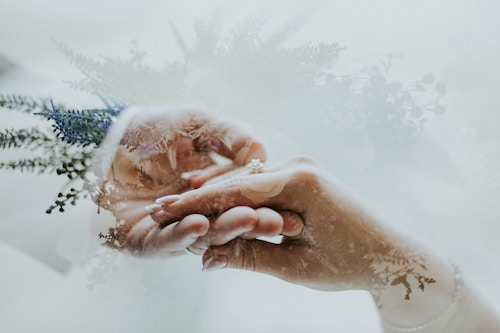
Truly Beloved: Elisa is loved and appreciated by her family well beyond belief
January 12, 2024
Listen to Melissa: If you do not know how to handle a situation, odds are you can trust Melissa Barbay to have good advice
January 15, 2024Unveiling the Origins: When Did Weddings Begin?
Weddings have been a significant part of human culture for centuries, but when did they first become a thing? Delving into the ancient roots of this cherished celebration, we can trace the evolution of weddings throughout history and explore how they have transformed into the elaborate ceremonies we know today.
The Ancient Origins of Weddings.
Weddings have a long and rich history, dating back thousands of years. Their origins can be traced back to ancient civilizations such as the Egyptians Greeks, and Romans.
In these early societies, weddings were often seen as a way to unite families, establish alliances and ensure the continuation of the bloodline. These early weddings were often simple affairs, with ceremonies taking place in the home or in small community gatherings.
Over time, they began to take on more elaborate and symbolic elements, incorporating traditions and rituals that are still seen in modern weddings today. From the exchange of rings to the wearing of white dresses, the ancient origins of these special celebrations continue to shape the way we celebrate this special occasion.
Wedding Traditions in Ancient Civilizations.
Wedding traditions have been a part of human culture for thousands of years, with ancient civilizations incorporating their own unique customs and rituals.
In ancient Egypt, for example, weddings were seen as a way to unite families and ensure the continuation of the bloodline. The ceremony would often take place in the home, with the bride and groom exchanging vows and the couple being blessed by the gods.
In ancient Greece, weddings were elaborate affairs that involved multiple days of celebration. The bride would be accompanied by a procession of family and friends, and the couple would exchange vows in front of witnesses.
In ancient Rome, weddings were seen as a way to establish alliances between families. The ceremony would often take place in the home, with the couple exchanging rings and the bride wearing a white dress to symbolize purity.
These ancient wedding traditions continue to influence modern weddings, with many couples incorporating elements from these early civilizations into their own special day.
The Influence of Religion on Weddings.
Religion has played a significant role in shaping wedding traditions throughout history. In many cultures, religious ceremonies are an integral part of the wedding celebration.
For example, in Christianity, weddings are often held in a church and officiated by a priest or minister. The ceremony may include readings from religious texts, prayers and the exchange of vows.
In Hinduism, weddings are considered a sacred union and are performed according to ancient rituals and customs. The ceremony may involve the couple taking seven steps around a sacred fire, exchanging garlands, and receiving blessings from the priest.
In Islam, weddings are typically conducted in a mosque and are officiated by an Imam. The ceremony may include recitation of verses from the Quran, the exchange of vows, and the signing of a marriage contract
These religious influences continue to shape wedding traditions today, with couples often incorporating specific rituals and customs into their ceremonies to honor their faith.
The Evolution of Wedding Customs and Traditions.
Wedding customs and traditions have evolved significantly throughout history, reflecting changes in society, culture and personal preferences. While the basic concept of a wedding as a celebration of love and commitment has remained constant, the specific rituals and customs associated with weddings have varied greatly across different time periods and cultures.
From ancient times to the present day, these special celebrations have been influenced by factors such as religion, social status and cultural traditions. Today, couples have more freedom than ever to personalize their weddings and create unique experiences that reflect their individuality and values.
Modern-Day Weddings: A Blend of Tradition and Personalization.
In modern times, weddings have become a blend of tradition and personalization. While many couples still incorporate traditional elements such as exchanging vows, wearing wedding attire and exchanging rings, they also have the freedom to add their own unique touches.
From personalized vows and unique ceremony locations, to customized decorations and themed receptions, couples are finding ways to make their weddings truly reflective of their personalities and love story. This blend of tradition and personalization allows couples to create memorable and meaningful experiences for themselves and their guests.
Written by Ubersuggest




